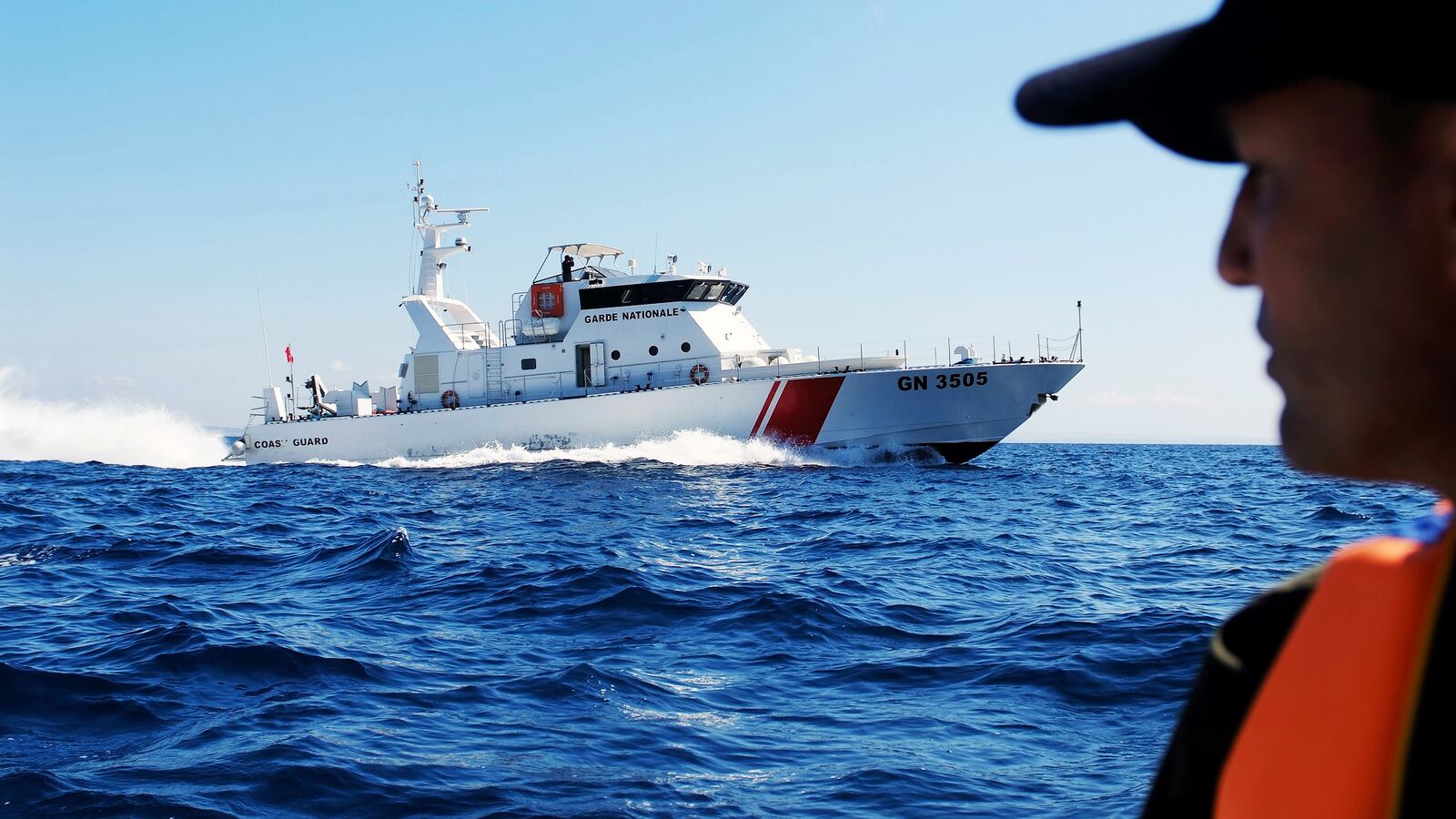ROME—When Anis Amri, the perpetrator of the 2016 Berlin Christmas Market truck massacre, arrived in Italy by sea from Tunisia in 2011, he was part of a mass exodus of tens of thousands of men escaping the Arab Spring uprisings. By 2012, Italy and Tunisia had signed a bilateral agreement to immediately repatriate all Tunisians who arrived by sea, and the number of those trying to make it to Europe dwindled to less than five percent of overall sea migration demographics.
But in late 2017, the number of Tunisians intercepted while attempting to come to Italy by sea suddenly spiked to nearly 10,000, marking a more than 200 percent increase over the year before. And in 2018, Tunisians are again on track to make up the bulk of sea arrivals that are intercepted.
But what is worrying counter-terrorism officials across Europe most is not the people they catch—it’s those who come into the country undeterred. Tunisians don’t generally drift across the sea in perilous rubber dinghies like sub-Saharan African migrants. According to Frontex, the European border control agency, they are far more likely to come from the shores of Tunisia and Algeria by chartered speed boats directly to Sicily or Sardinia.
Frontex chief Fabrice Leggeri warned the European Parliament this week that the Tunisians are not like other migrants in search of a better life. He said they are likely terrorists coming to wage holy war. He said Frontex surveillance aircraft have detected scores of smaller speed boats that were not seen by Italian Coast Guard officials.
Leggeri said that while the number of migrant departures from Libya had decreased thanks to an accord between Italy and Libya that bolstered the Libyan Coast Guard’s capabilities to turn boats back, the number of departures from Tunisia and Algeria had increased, and now makes up almost 20 percent of all irregular migration crossings.
“(The terrorism threat) remains high and we must be certain that there are no frontier crossings to the EU that are not intercepted,” he said. “This would be to the detriment of European security.”
That threat has put Italy on high alert. On Thursday, four Tunisians and a Palestinian were arrested in the town of Latina, south of Rome. The men were known associates of Berlin killer Amri, who had spent time in Latina after being released from prison in Palermo four years after he arrived in Italy by sea. They had been caught on wiretaps talking about recruiting new arrivals to the country with videos that urged foreign fighters to “cut off the heads and genitalia of non-believers.”
The men had been under surveillance since Amri was killed in Milan after traveling from Berlin via France to the northern Italian city. One of the men is thought to have been one of Amri’s accomplices in the Christmas market attack, according to investigators who announced the arrests. He may have been involved in the procurement of Amri’s false documents and travel tickets that allowed him to escape Berlin undetected.
Police across Italy also made a string of other arrests in the week leading up to Easter, which traditionally kicks off the busy tourist season in Rome and other cities. An Egyptian Cleric, Abdel Rahman, was arrested in Foggia in the southern region of Puglia on Monday, after preaching to children between the ages of four and ten to kill Westerners. “I invite you to fight the unbelievers, with your swords cut off their heads, with your explosive belts blow up their bodies," he said in a sermon that was caught on tape. “It is necessary to break the skulls of the unbelievers and drink their blood to obtain the victory.”
On Wednesday, 23-year-old Moroccan Halili El Mahdi was arrested in Turin after authorities there became concerned he and associates in another European country were planning an “imminent attack.” He had been overheard recruiting fighters to act as lone wolves, using either vehicles or knives, according to Carlo Ambra, head of Turin’s anti-terrorism police force. “It was time to intervene,” he told La Repubblica newspaper. “We couldn't afford to wait until he identified a target to strike.”
Italy’s interior minister Marco Minniti has suggested that as many as 30,000 “foreign fighters” are currently “on the run” from Syria and Iraq, and he said many of them may be trying to get to Europe on migrant boats. “There are between 25,000 and 30,000 foreign fighters who, in the face of a military retreat, are preparing to infiltrate the diaspora in Europe, taking advantage of the routes that remain open,” Minitti said, referring to the central Mediterranean route between the north African coast and Italy.
Security concerns tied to migration reached a fevered pitch during Italian elections in early March that so far have not produced a working government. Matteo Salvini, the leader of the anti-immigration Northern League party whose center-right coalition is poised to guide the new Italian government, posted a damning warning on his party’s Facebook page. “Terrorism risk is very high: after the arrests and the denunciation by Frontex about the possibility that there are infiltrators among those who disembark, we ask for an immediate intervention, a strict control of all our borders by sea and land and the suspension of any further landing on our coast. Islamic terrorists are arrested and released, people are coming and going, killing and returning ... We must have control of the borders and expulsion of illegal immigrants. I hope to soon have the power to do it.”






